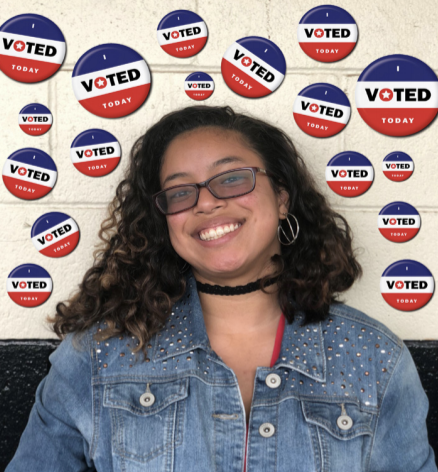Voting Young Helps to Shape the World of Politics

March 8, 2019
Wanting a chance to have more control over their future, teenagers all over the United States are pushing to have the voting age lowered to 16. With their lives already introduced to politics, the right to vote should be granted to these teens.
Lowering the age of voting to 16 would make the group of young voters more numerous and possibly increase youth voting turnout, the lowest of the age groups. At the age of 16, most teenagers begin to start different responsibilities into their journey to be an adult. In some states, they earn their driver’s license, a job, and some even pay taxes. However, the right to vote is not a privilege they are allowed to have at this age.
Without the ability to vote, 16-year-olds have no control over the politics that rule over their lives. Even if some wouldn’t care to admit it, politics have a strong hold over people’s lives. Denying 16-year-olds a right to vote is the equivalent to denying them the chance to help shape the future, their future.
Most would argue that 16-year-olds don’t know enough about politics to be allowed to vote. Although some teenagers express interest in politics, others don’t show enough to prove that they should be allowed to vote. They cannot fully experience how the government works at such a young age, and as they get older and have more experience with it, their ideas on politics change.
While teenagers can have strong opinions on certain political matters, they can be impacted by the opinions of their peers. Their influence can be inspired by their parents’ political views. Despite politics and society changing over the years, the change of the voting age happened for a reason that cannot be applied to current times.
The last national change to the voting age was in 1971, where 18-year-olds were fighting in Vietnam.
“It seemed wrong to say they couldn’t vote for their national leaders until they were 21,” David Davenport, a writer for Forbes wrote in “No, We Shouldn’t Lower the Voting Age to 16.”
Teenagers are often involved with politics, even without the ability to vote. They take part in walkouts and participate in protests to voice their opinions.
There is a question if teenagers are mature enough for voting. According to Karen Fratti, a journalist at Bustle, the “prefrontal cortex, the part of the brain that helps with planning, reasoning, judgement, and impulse control” is fully developed, but teenagers have been known for going with their gut instinct when certain situations arise.
With the lack of maturity, teenagers are often shaped into certain political views depending on the views of the adults in their lives.
They also might not have a full understanding of what is legitimately going on in politics. While they are still learning about politics in school, teenagers don’t truly get to build their own opinions about their ideas for politics.
Even though these are all compelling cons to lowering the voting age, the pros for the lowered voting age are numerous as well. Sixteen-year-olds deserve the right to vote, same as adults.
Teenagers are treated as adults in some situations, so why can they not be treated as such when it comes to voting? Fourteen-year-olds can get a job, and in some states, such as California and Colorado, they can start younger than that. Once they have possession of a working permit, they have access to an income and start paying taxes.
Depending on the states, 16-year-olds can get their own license. While driving on the roads, they have to pay attention to the signs and be aware of and follow the laws of the road. Depending on the level of the offense, 16-year-olds can be charged as an adult. If they can spend the rest of their lives in prison, the same argument can be used that they should be allowed to vote.
The positive outcomes for lowering the voting age impacts voting turnout. Only 28 percent of voters between the ages of 18-24 say they would unquestionably vote at midterm elections, according to Vox. With the age lowered to 16, the number of voters would hypothetically increase.
Teenagers participate in politics without voting as it is. In a struggle to give themselves a voice, teenagers attend protests. Even without the ability to vote, teenagers are engaged in politics and show interest in it. This can mean that there will be teenagers who will be eager to vote and that may increase the voter turnout for the younger voting range. Involving teenagers adds more people to vote, more perspectives to be added.
A lowered voting age pressures parents and schools to prepare their teenagers for voting. It could also instill an early habit of getting people to continuously vote. It encourages a sense of responsibility and a want to get more involved with their community.
Contrary to popular belief, 18 isn’t a very good age to start voting. Most voters prefer to start voting when they are in a stable environment, and that isn’t where most 18-year-olds are. Sixteen-year-olds are more likely to be living in a home and have more stability. At 18, most are moving out of their homes, going to college and beginning life on their own.
Starting voting young strengthens the habit of voting frequently. With them voting so young and continuing throughout their lives, it increases the amount of voter turnout which is very low. They create habits that will help the number of votes which will help shape the world of politics.

